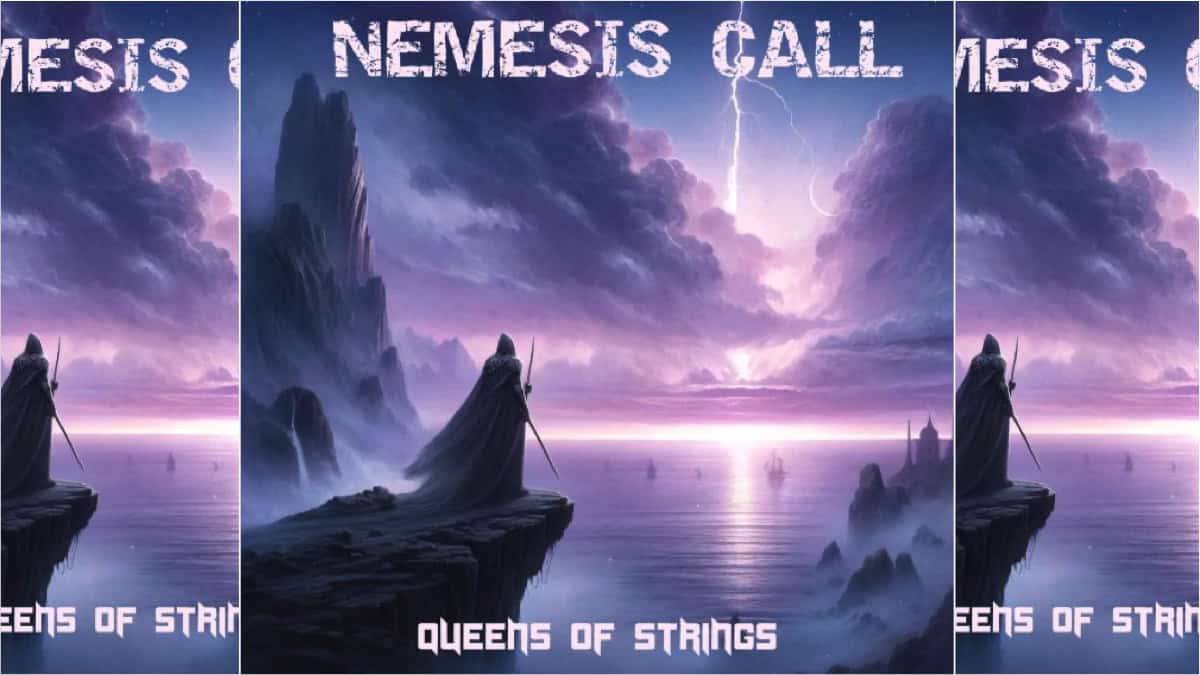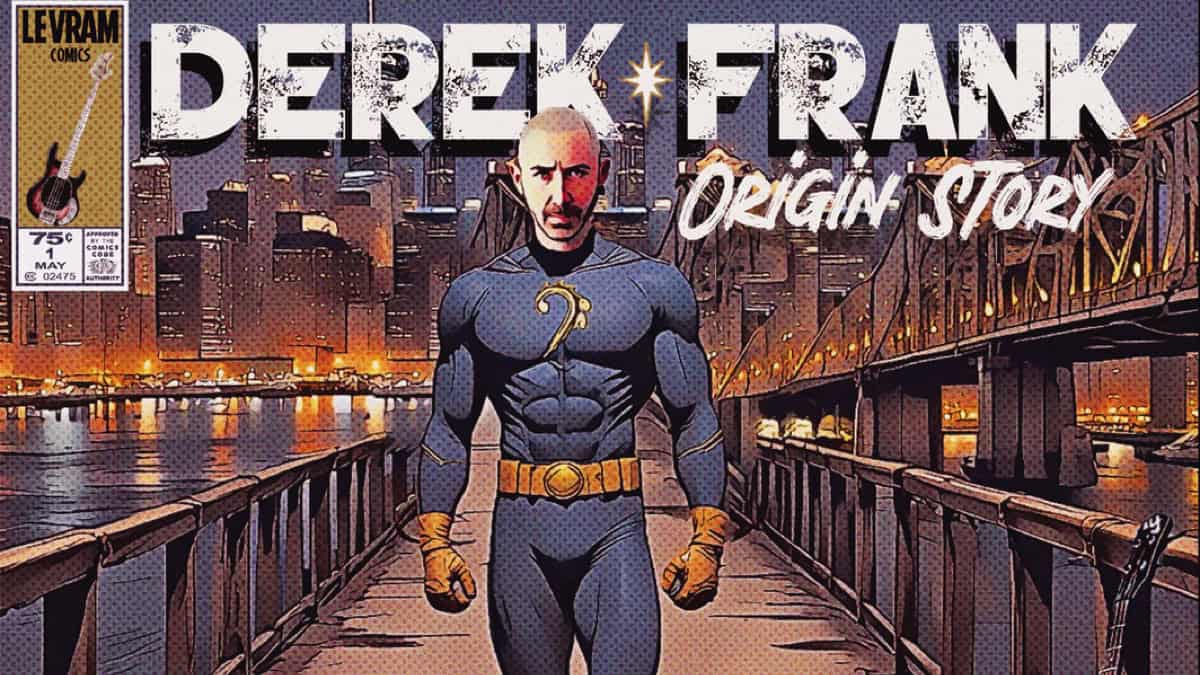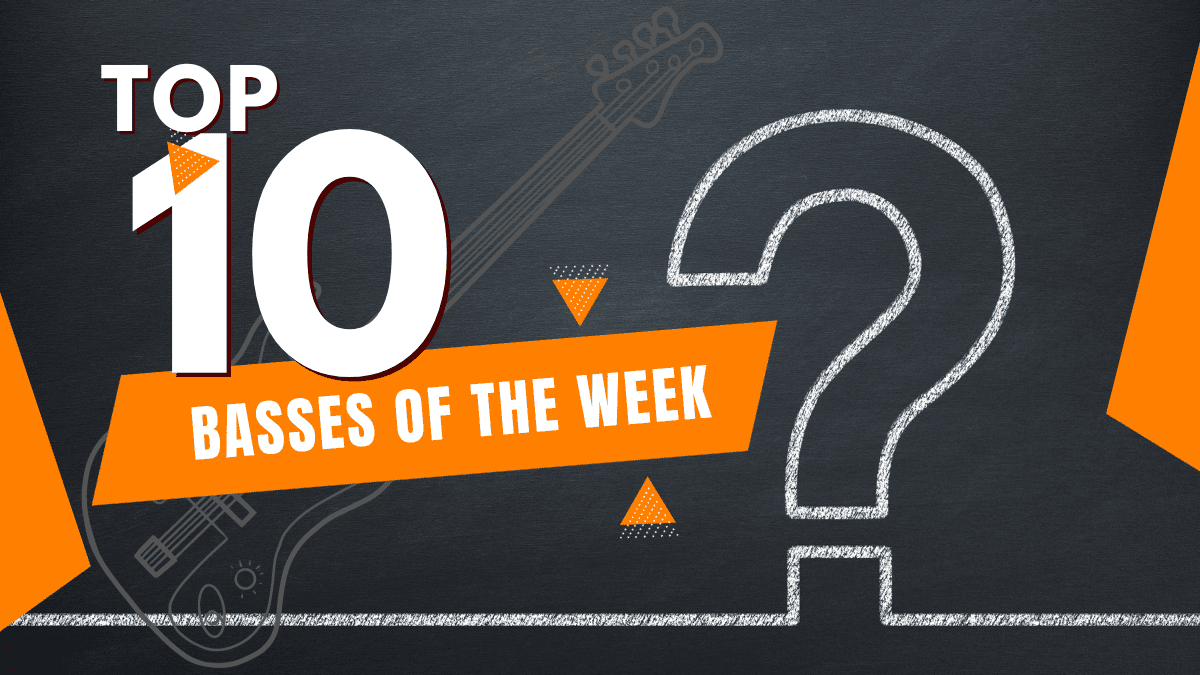Latest
From Amateur to Pro: A Discussion with Steve Lawson by John Kuhlman

The fourth featured artist in this series, “From Amateur to Pro” is solo bassist, looper, improvisor and self-described sound-scapist, Steve Lawson. Primarily known for his solo and duet works on his Pillow Mountain label, he has also toured with groups supporting Level 42 and 21st Century Schizoid Band as a solo artist. He has also shared the stage with other solo artists like Michael Manring and as a duo with the vocalist Lobelia.
Lawson also manages and teaches a master class series in Birmingham, UK, known as Beyond Bass Camp. The camp is an intensive one-day workshop for bass player who want to explore the technical, theoretical and mechanical aspects of making music with a bass.
Bass Musician Magazine: Based on your experience as a working musician, what are the one or two musical skills that you consistently see are lacking in bassists trying to make the transition from playing at home to gigging for pay?
Steve Lawson: I think “trying to make the transition” is perhaps the biggest mistake. Making money from music — the notion of a career in anything is becoming increasingly tenuous — happens because people want to listen to you and are willing to pay money. They are paying that money either to you, or for something else you’re attracting them to where you are being paid to be the bait. For example, if you are playing in a pub, you are the bait for beer.
The skills required to do that are the same as those needed to make meaningful music anywhere else. Specifically, the skills to know what’s required for the music to sound as good as you can make it, and to develop the physical ability to make that happen.
I guess the main thing that people get wrong in relation to it being professional is they get hung up on money and not on respecting music enough to play it with people who care as much about playing great music as you do. So anything that gets in the way of that is a bad thing, whether it’s punctuality or an inappropriate bass tone, getting drunk on the gig, or not being able to work with the drummer to make whatever groove the song requires happen in the best possible way. Whether it’s you or the other guys you’re working with that make those mistakes, it’ll be costly to any future ambitions you might have of working to a high standard…paid or not.
Most of the people I know who play music professionally do so because they were already playing to a very high standard of skill and attentiveness before they started getting paid for it. Do it because the music matters more than the money. If you happen to find that you’re making enough from music to slow down on the day gig, brilliant. But it’s worth remembering that if what you really want to do is play your own music, playing in a wedding band is a day gig.
BMM: Following that theme, what about personal or business skills that bassists should have, but many don’t bother developing?
Lawson: Personal skills are such a huge area, and are more about being fully human than anything specifically professional. We all like being around people who are nice, keen, excited about music, who know when not to talk, who do their job with a degree of humility, who want the best for everyone involved in whichever one of life’s great projects we happen to be engaged in. No one wants to hang out with someone who thinks they’re a rock star, whether or not they are actually a rock star or a van driver. Either way, being nice is as important as being a musical badass.
Most of the bass skills required for the majority of music gigs that end up with you getting paid are simple, repetitive and focused. They’re the things that make everyone else sound great. If that’s at odds with your personality, it might be worth sticking with the over the top originals band and enjoying whatever non-musical stuff you fill your time without outside of the two hours of bass-shredding on stage each weekend!
BMM: When it comes to gigs, there seem to be two schools of thought: Take every gig you can to build your experience and network; or be very selective and cultivate your music credentials and reputation. What are your thoughts on building a successful gigging resume?
Lawson: I don’t think there’s a right or wrong answer here. I think the key is to act deliberately, with an outcome in mind. Too many people’s musical part seems to be defined by desperation, but with very little idea of what the outcome of that desperation is supposed to be. So they chase whatever vision of success has most recently and forcefully been impressed upon them. Instead, if we think about what we’re interested in, about what kind of music making is important to us, then we can pursue that.
I think taking new gigs is a really good learning path. Every new gig with good musicians is worth roughly 10 lessons of learning if you do it right: new material, new people, new environment, new styles, and new challenges. Wonderful.
But the preparation for gigs playing music that you have no interest in or attachment to can sometimes act as a huge distraction from the music you feel called to make. So a balance needs to be struck between the value of learning and the dangers of distraction.
BMM: Based on your experience as a solo artist, what are some of the challenges facing the soloist vs the band member or studio musician and is there a particular skill set that you were surprised was required of you?
Lawson: As a solo artist you’re in charge of everything. You own the success. You own the failure. You’re the draw at the show, the name on the poster, the entertainer, the between-song talker. Most of the time you’re also the sound guy, roadie and manager. That’s a lot of responsibility to carry!
 It’s both lonely and liberating. You have no one to fall out with musically, but also no one on stage to bounce ideas off of defer to when you run out of inspiration. So it’s a particular kind of enterprise with a unique set of musical and organizational challenges. It’s less of a party, generally, but the connections you can make are deeper because your music is you. There’s no aggregate message from the combined personalities in the band. It’s just you and the audience, and your music is doing the talking. That’s a massive privilege but also a responsibility. You either relish it or you don’t do it!
It’s both lonely and liberating. You have no one to fall out with musically, but also no one on stage to bounce ideas off of defer to when you run out of inspiration. So it’s a particular kind of enterprise with a unique set of musical and organizational challenges. It’s less of a party, generally, but the connections you can make are deeper because your music is you. There’s no aggregate message from the combined personalities in the band. It’s just you and the audience, and your music is doing the talking. That’s a massive privilege but also a responsibility. You either relish it or you don’t do it!
The skills I struggle with more than any are organizational. Whether its booking shows, following up on logistical stuff, or chasing contacts. I’m terrible at that stuff, and sometimes wish I could afford to have someone else help me with it. But if I did, I’d probably end up telling them what I wanted them to do, which wouldn’t be any fun for them. So perhaps I need a co-worker that I can split tasks with!
BMM: With your experience leading Beyond Bass Camp, let’s ratchet that experience up a bit, cross mediums and several million light years and put you in the role of Yoda teaching a young Luke Skywalker the way of the bass and what it takes to survive as a gigging musician. What would you teach him?
Lawson: I’d tell him that surviving as a gigging musician was overrated as a pursuit in its own right. I’d tell him that being fully human, doing a good job, and making art that represents you well in the world are all deeply valuable pursuits with lessons attached, whether your succeed or fail in economic terms.
I’d suggest that sustainability is to be found in playing deliberately, spending as little money as possible, (though that may still require you to spend more on a bass than you would on a car) surrounding yourself with people who are open to the possibility that art is more important than commerce, and that money is just a pragmatic part of being able to do the things we love. It’s not an end in itself or a measure of anything meaningful.
It may be that failure as a gigging musician, in whatever terms you approach it at the start of your journey, may end up being success on a deeper more meaningful level. I’d share my own story of having my solo career quite effectively kill my session career, but open me up to a whole other way of thinking about and playing music that, while never making me rich, has put me in a pretty unique place in the musical landscape. And that is worth a thousand times more than a whole load of pro gigs as a sideman.
Gear News
New Gear: Spector Doug Wimbish USA Custom Series Basses

Spector offers Doug Wimbish USA Custom Series basses…
Spector, a leading authority in bass guitar design, unveils two new Doug Wimbish USA Custom Series basses. Synonymous with bass excellence since 1987, Wimbish collaborated with Spector’s USA Custom Shop to create the DW-4 and DW-5 models, echoing the iconic instruments that have been favored heavily throughout his recording and performing career.
These signature basses faithfully replicate Wimbish’s originals, down to the smallest details like neck contours and nut widths. Customized EMG pickups, developed in collaboration with Wimbish, capture the distinctive sound that has shaped his monumental musical impact. These models invite players to explore the feel and response that have defined Wimbish’s signature style over the years.
Available in 4-string and 5-string versions, each model boasts unique features & finish options. The DW-4 comes in Amber Stain Gloss and Black Stain Gloss options, while the DW-5 offers Dark Blue Stain Gloss and Faded Natural Gloss. Every purchase includes a certificate of authenticity signed by Doug Wimbish. Wimbish comments, “Spector took the time to get every little nuance right, and that to me is dedication and being thoughtful enough to know ‘I want to nail it,’ and they did. I’m able to pick these instruments up for the first time and play them like I’ve already had them for years.”
For more information, visit spectorbass.com/doug-wimbish-usa-signature-series/.
Photo: Doug Wimbish, pictured with the new Spector Doug Wimbish USA Custom Series basses
Bass CDs
New Campaign: Alberto Rigoni, Nemesis Call – Queens Of Strings

Italian bass master and composer ALBERTO RIGONI is thrilled to announce his brand new project “Nemesis Call – Queens Of Strings”.
Nemesis Call – Queens Of Strings features a super talented drummer from Japan (TBA) and tons of female guitarists such as SAKI, Giusy Busetto, Alexandra Zerner (TBC) and many many others (TBA). Furthermore, Alberto has also launched a Fundraising Campaign for the project. 20% of the income will be donated to Lega del Filo d’Oro legadelfilodoro.it/it, an Italian association that helps deaf and blind children!
Alberto shares:
“Hello friends and music lovers! I’m Alberto Rigoni, an Italian composer and.. a BASS GUY! Between 2008 and 2024 I released 13 solo albums, spanning from progressive, rock, ambient to funky and experimental music, which also features contributions from musicians such as keyboard wizard Jordan Rudess (Dream Theater) drummer Gavin Harrison (Porcupine Tree) and Marco Minnemann (the Aristocrats), keyboardist Kevin Moore (ex Dream Theater), singer John Jeff Soto (ex Goran Edman (ex Y. Malmsteen), bassists Nathan East, Stu Hamm (Joe Satriani), Nik West (ex Prince) and many others. I’m also bass player for BAD As, Sunset Groove Society, Kim Bingham, The Italians bands and co-producer of Mistheria’s Vivaldi Metal Project.”
Alberto on the new project Nemesis Call:
“Even if my latest album “Unexpected Lullabies”, dedicated to my newborn Vittoria Parini Rigoni, will be released on June 4th, 2024, when Vittoria came to life I felt the need to compose new music (yes, I really can’t stop!!!!!). This time will be quite challenging because I’m willing to release an instrumental ambient/prog/rock/metal album, that will feature a talented and young drummer (TBA) and tons of female guitarists (that’s why I will call the album “Queens of the Strings”) such as Alexandra Zerner, YOKA and many others (TBA/TBC)). It won’t be easy to manage all such great musicians but I will make it!! Are you ready to face a new prog experience? The album will be released in Digipack CD and in high-quality digital format approximately at the beginning of 2025.”
The Fundraising Campaign:
As an independent artist, Alberto is looking for supporters who can help him reach the budget for the production (recordings, mix, mastering, artwork etc.) of this new album and has started this fundraising campaign that will end successfully on October 15th, 2024.
Get further information about Alberto Rigoni’s new project Nemesis Call Fundraising campaign at albertorigoni.net/nemesiscal
Bass Videos
Artist Update With Bassist Derek Frank

Bassist Derek Frank…
Many of you will remember the last time I chatted with Derek Frank was back in 2017. The main thing that impressed me was how busy Derek was and how he juggled playing with many huge acts.
Now, I am happy to hear that Derek launched a new album last March titled “Origin Story” where he digs deep into his roots and pays homage to Pittsburg.
Join me as we get caught up after all these years and hear the details about the new album, how Derek gets his sound, and his plans for the future.
Photo, Stephen Bradley
Featured Videos:
Visit Online:
www.derekfrank.com
www.instagram.com/derekfrankbass
www.youtube.com/derekfrankbass
www.facebook.com/derekfrankbass
Latest
This Week’s Top 10 Basses on Instagram

Check out our top 10 favorite basses on Instagram this week…
Click to follow Bass Musician on Instagram @bassmusicianmag
FEATURED @foderaguitars @bqwbassguitar @lecomptebass @xvector_basses @vuorensaku_guitars @phdbassguitars @meridian_guitars @sterlingbymusicman @ramabass.ok @overwaterbasses
Gear News
New Gear: Alberto Rigoni Signature Bass, the VPR5 by Gaetano Costanzo!

Alberto Rigoni Signature Bass, the VPR5 by Gaetano Costanzo!
Internationally renowned bassist ALBERTO RIGONI (soloist, BAD AS, Vivaldi Metal Project, TwinSpirits, etc.) is proud to announce the release of his signature bass VPR5 made by renowned Italian luthier Gaetano Costanzo!
The bass is entirely handmade in Italy, without the use of CNC or other machinery, and has rather special features. The VPR is a 5-string bass (but also available as a 4-string) with 30 frets, Seymour Duncan pickups, Music Man Alnico style, passive electronics (volume, tone and a switch to select series/parallel/single-coil mode), alder body, and American maple neck and fingerboard. Gotoh tuners that ensure perfect intonation. The bass is totally painted white (nitro finish) but other colors can be requested. The VPR has a weight of about 2.9 kg and suitable for any genre.
For more information contact Gaetanobass77@gmail.com or visit online at www.instagram.com/gaetanocostanzoluthier or www.facebook.com/GaetanoCostanzoLuthier















